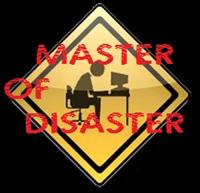Dear all,
Before I start this subject, I would like to say that we at RHOK need all the professionals that can help in this great cause for the humanity, enjoy reading, and may God bless you all.
In 2009 Google, Microsoft, Yahoo!, NASA and the World Bank Founded the Random Hacks Of Kindness ( RHOK ), a global community of experts and volunteer technologists with innovation focused on developing practical open source solutions for disaster risk management and climate change adaptation challenges.
Since then thousands of volunteers have worked on applications that are already making an impact. I’m OK, an SMS service that lets people inform their families of their status, was used on the ground during the devastating earthquakes in Haiti and Chile in 2010. The World Bank is piloting CHASM, software for visualizing landslide risk, in the Caribbean. Other apps have received support and interest from governments, NGOs and international organizations around the world.
RHOK community grew rapidly in 2010 and 2011, with volunteer-organized events taking place in 26 cities around the globe, over 3000 registrants and resulting in 200 distinct projects worked on, and 29 events so far have been established.
RHOK main-stage events have been attended globally by VIPs in governments, and in the technology and development communities, and RHOK keynote speeches were given by UN Secretary General Ban Ki-Moon, FEMA Administrator Craig Fugate and “Father of the Internet” Vint Cerf.
RHOK has received over 4 million Twitter impressions and has been covered by more than 300 news sources globally, including the NY Times, Forbes, the L.A. Times, Fox, Slashdot.org, and USA Today, including feature articles by NPR and Brazil’s top technology magazine. The Washington D.C. RHOK event in June 2010 was featured on the White House website.
RHOK works by bringing together experts in development and volunteers with a broad set of skills in software development and design. The goal is to produce practical open source solutions to development problems. Events give the community an opportunity to sprint on projects, but the community continues to collaborate around the year.
In the two short years since its inception, RHOK ( Random Hacks of Kindness ) has grown into a diverse global community of experts and volunteer technologists putting their skills to work for the greater good.
An important part of that diversity is the significant number of women programmers who have come out to RHOK events to hack for humanity. Women have traditionally been underrepresented in the global software development community. And at RHOK, we are aiming to better the statistics.
Problems we are addressing so far:
--------------------------------------------
1-Mapping needs and responses to a crisis:
Current technologies allow damage or incident reports to be mapped, providing a clearer picture of the overall situation.Since crisis response usually involves a multitude of stakeholders, COORDINATION of the response is very important to avoid duplication of efforts and ensuring that (ideally) all needs are met. Current technologies don't seem to go beyond the mapping of reports however. I believe that it would be of great use to the stakeholders involved in the response to be able to also map the NEEDED responses (e.g. in terms of number of items and their specifications required, possibly linked to a group of received reports), as well as the ACTUAL responses (by donors making funds available or local businessmen contributing some of the needed materials or even diaspora clicking on a "donate" button to contribute to the response in their community). This combined information would allow us to clearly show the gaps.A public and open source platform seems the perfect solution for this but to date I have not been able to find a solution that brings these elements together.
2-Disaster Information Provision for Patients with Chronic Disease:
In order for people with chronic disease to appropriately manage their illness there must be a stable routine. For some people with chronic disease (such as those with diabetes and severe asthma), the interruption to medication supply and health services which a disaster poses may prove life threatening. Solutions are necessary which link those with chronic disease to health information specific to their situation.
3-Participatory Flood Monitoring and Alert System in Central America:
Belize
Guatemala
El Salvador
Nicaragua
Costa Rica
Panama
Dominican Republic
Participatory input of information, mainly by sms/web, about flood in urban and rural areas, will build a database that can be asses and consulted by organizations, government and media responsible or participating in Alert and Attention to Disaster system.
4-Message Carrier: Messages Without Connectivity:
A disaster occurs, there is no cell phone connectivity or wireless connection as you flee the scene. You'd like to get messages out to people you are close with. The needed solution is a way to transport messages from sender to receiver when no connectivity is available (ie, through the people - like passing paper messages, but smarter and faster).
5-Bushfire Connect:
As an example, the 2009 Black Saturday bush-fires in Victoria, Australia, burnt the equivalent of 1 million football fields, displaced 7,500 people across 78 townships, resulting in 173 dead and 2000 houses lost.We know when bushfires happen, people want fast access to trustworthy information. Bushfire Connect aggregates information from multiple sources: official and social, about events and incidents such as community meetings, fires, and road closures, in a way that empowers anyone to contribute local knowledge and make informed decisions. Bushfire Connect delivers this information through multiple media such as the web, mobile devices and custom SMS.
6-Disaster Alerts - Browser & Mobile:
Show emergency alerts (hurricane, tsunami, tornado, warnings, etc) in browsers or as a Mobile Widget/Application. Constrain to IP geolocations in warning area. Start with a desktop plugin, migrate to a native browser feature, meld with CAP standard, deploy as a mobile application.
7-Bacon - Finding People:
Many victims of catastrophes, die or remain disabled due to the time that one is late in locating them.The challenge is to detect and locate the victims buried by collapsed structures, avalanches, etc., using the mobile phones, creating an application that is auto-activated under certain circumstances or situations, and that uses Wi-fi's signal or Bluetooth for such a effect.
8-Missing Sidewalk Data:
There is not a way for search engines like Google, Yahoo, and Bing to provide safe and reliable walking directions. This is true because in the US, sidewalk data is very rare. Especially condition data.
9-Disaster Panel:
Central to disaster risk reduction is advocating the importance of the issue and the real time impact. The ‘Disaster Panel’ is a simple idea to communicate the current disasters that are occurring throughout the world and how your particular organization is responding (or not responding) to those events.
Regards
JAMAL H. NAJI
All My Previous Topics & Tutorials : here





















